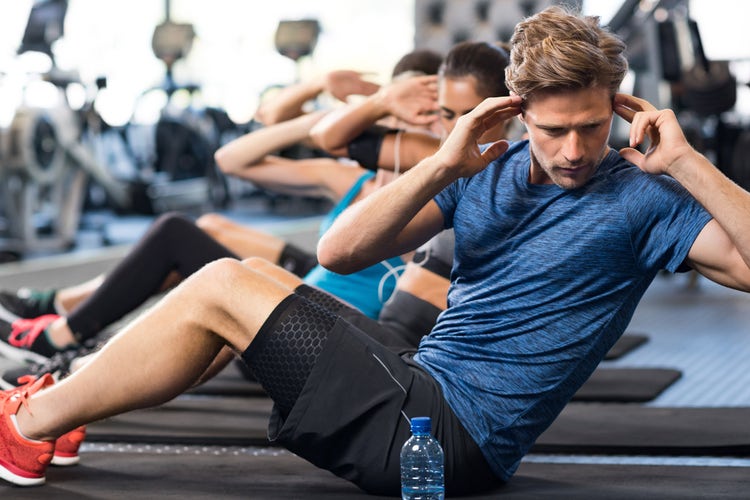When Peer Pressure Is a Good Thing

Having trouble sticking to healthy habits? Perhaps peer pressure is exactly what you need. Although peer pressure is often associated with negative ways to conform, it can be a positive influence to encourage and help establish good health habits.
It begins when people with similar interests “hang out” together. People tend to associate with others who are similar in ethnic backgrounds, age, religion, education and interests including healthy behaviors such as exercise and good eating habits.
Find your identity

Ever wanted to be a runner, to think of yourself as a certain type of athlete or just wanted to be fit and healthy? When people consider themselves as part of a group, such “old” or “young at heart,” “fit” or “healthy” and then identify themselves as a member of this group, they will adapt to the norms of this group as their own.
Psychologists call this social-identity. The more you identify with a particular group such as a running or cycling group, walking group or gym buddies, the more you will associate with those exercising identities and behaviors.
Tip: Join a running group, immerse yourself in groups of other athletes such as a triathlon or obstacle-race group, or join groups of people who exercise together in a gym-class setting. Behaving according to your group, regardless of your age, can have a positive impact on your lifestyle, whether that’s making time to run or trying out the breakfast protein shake your gym partner makes.
Find your style of motivation

But sometimes we need a nudge from someone or somewhere else. That’s “controlled” motivation and most often, it comes from our social groups. The interesting conversation with your hiking or running buddies might be what gets you to the end of your 6-mile route; or swapping meal prep ideas or tips on the best gym shoes with your training group is what gets you through your workout.
Psychologists say social connections are an important predictor of who will remain physically active. Most often a connection of friendships from workout buddies will keep you going.
Tip: Sign up for scheduled group run, a fun hike or a new workout with people who are waiting to see you. That way you won’t let yourself—or your buddies—down! Sometimes even social connections need a little reinforcement to keep everyone accountable, and organized activities can help everyone stay on course when something like the weather makes everyone feel like they’d rather skip the work.
Make group-think your thing

Over time, the “controlled” motivation that comes from your social group can become behavior that you internalize. Internalized behaviors become more automatic—under your control. Then, when you recognize and understand the happy but tired feeling after a good sweat session or the increased energy you have after eating a healthy meal, research shows it’s more likely you will sustain those healthy habits in the long run.
So go ahead, give in to the good kind of peer pressure. You just might find yourself pushing a little harder in your workouts, having more fun and seeing those physical improvements—and chances are someone else in your group will find the support he or she needs, from you.
Video credit: PavelPrichystal, Shutterstock
Photo credits: Rido, Adobe Stock; disanpetkovic, iStock; skynesher, iStock; PeopleImages, iStock